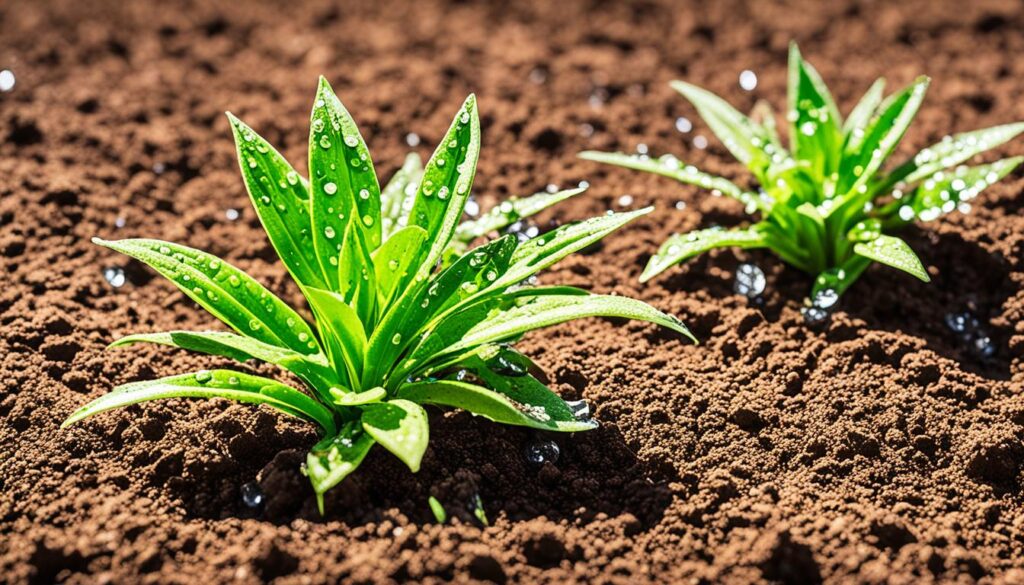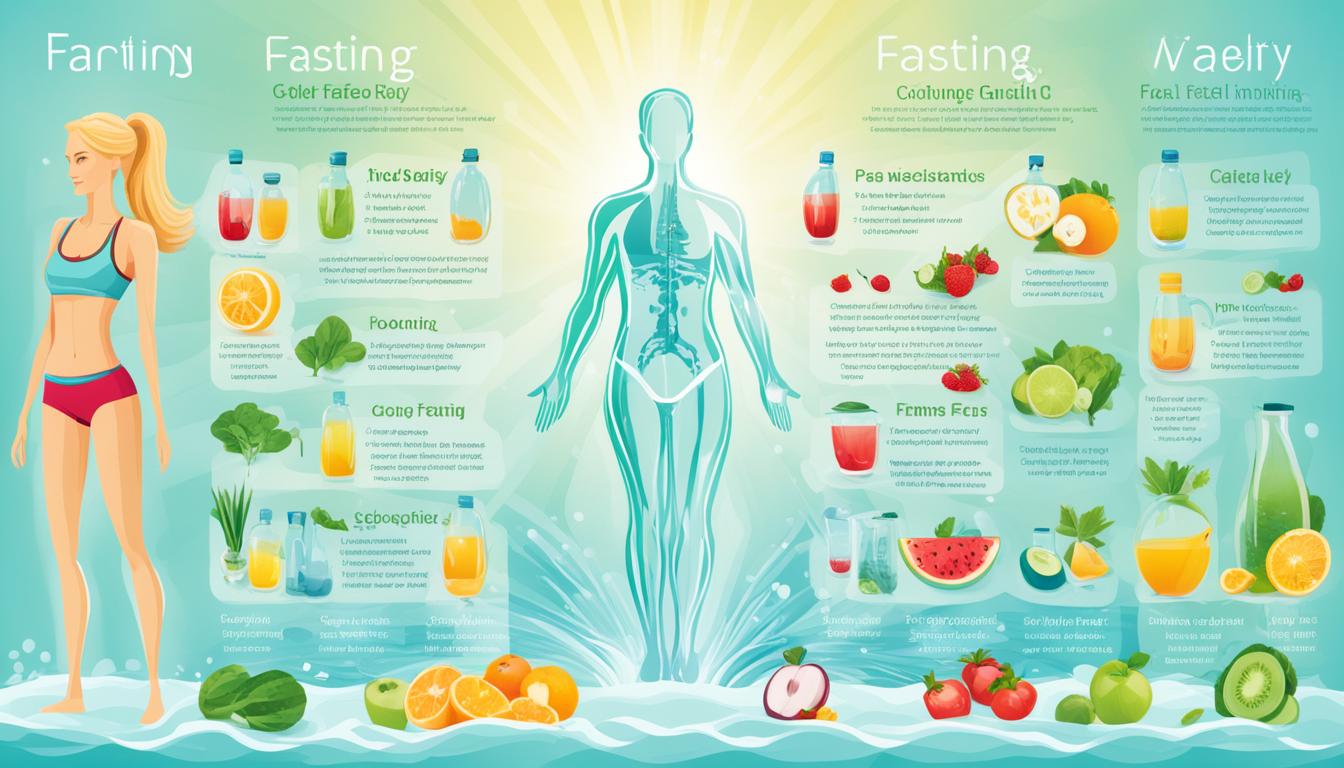Are you looking for a way to improve your health and lose weight? The water diet, also known as water fasting, might be an option. This method involves drinking only water for a while, from a few days to weeks. It may seem tough, but water fasting has been around for centuries and can help with hydration and losing weight.
Water fasting is not new; doctors and therapists have recommended it for health for centuries. Even famous author Mark Twain thought it was good for the sick. Since it has no calories, it can help you lose weight by using stored energy and burning fat.
Water fasting can also help your cells renew themselves, which may prevent diseases. Studies on animals show it could even make you live longer. It might also help lower blood pressure and make your body more sensitive to insulin and leptin, which affects how you metabolize food and feel hungry.
But, you should be careful with water fasting and get advice from a doctor if you have health issues. You might feel hungry, tired, or dehydrated. You could also miss out on nutrients, face detox symptoms, struggle with social life, or feel emotionally down.
Key Takeaways
- Water fasting means drinking only water for a period, from a few days to weeks.
- This diet has been around for centuries and is thought to improve hydration and help with weight loss.
- It might help your cells renew themselves, preventing diseases and possibly making you live longer.
- It could also lower blood pressure and make your body more sensitive to insulin and leptin.
- Be careful with water fasting and get advice from a doctor, especially if you have health issues.
What is Water Fasting?
Water fasting means not eating or drinking anything except water for a while. It’s a popular way to clean the body, lose weight, and get healthier. People usually fast for up to 24 hours, but some fast longer with a doctor’s help.
Understanding the Basics of Water Fasting
When you fast, your body starts to use stored fat for energy. This can help you lose weight and boost your metabolism. Experts say to drink 2-3 liters of water a day to stay hydrated and help your body detox.
Be careful and think it over before starting a fast. You might want to talk to a doctor before fasting if you’re:
- Children and teens
- Adults over 75
- Pregnant or nursing
- Someone with eating disorders
Benefits and Risks of Water Fasting
Water fasting might have some good effects, like:
- Helping you lose weight and burn fat
- Making your body more sensitive to insulin
- Lowering inflammation
- Improving brain function
But, there are also risks, such as:
| Risk | Description |
|---|---|
| Dehydration | Not drinking enough water can make you dehydrated |
| Orthostatic hypotension | Your blood pressure might drop when you stand up |
| Muscle loss | Fasting for too long can cause muscle loss |
| Exacerbation of medical conditions | Fasting might make some health problems worse, like gout or eating disorders |
Always talk to a doctor before starting a water fast to make sure it’s safe for you.
Knowing about water fasting, its good points, and its downsides can help you decide if it’s good for you. Remember, fasting can be a strong way to improve health, but be careful and use it wisely.
Preparing for a Water Fast
Before starting a water fast, it’s key to get your body and mind ready. This step is vital for a safe and successful fast. By planning ahead and adjusting, you can get the most out of fasting while avoiding risks.

Choosing the Right Time for Your Water Fast
Choosing the best time for your fast is crucial. Pick a time when your body doesn’t need a lot of energy, like a weekend or when your work is light. This lets you rest and listen to your body without stress from work or other activities.
Also, pick a time when you can relax and have support. Avoid busy or stressful times that might make you give up early. Planning your fast well helps you stay committed and enjoy the benefits fully.
Consulting with a Healthcare Professional
It’s vital to talk to a healthcare professional before fasting. They can check your health, consider any health issues you have, and guide you on the best fasting duration for you.
Water fasting isn’t right for everyone. Some people should be careful or avoid it, especially without a doctor’s watchful eye. These include:
- Children and adolescents
- Adults over the age of 75
- Pregnant or nursing women
- Individuals with a history of eating disorders
Your doctor can tell you if fasting is safe for you. They might suggest other fasting methods or changes to keep you healthy during the fast.
Remember, getting ready for a water fast is key to a safe and effective experience. Picking the right time, talking to a doctor, and adjusting your life helps you get the most from this powerful practice.
| Preparation Step | Key Considerations |
|---|---|
| Timing | Choose a low-stress period with minimal energy demands |
| Environment | Create a peaceful and supportive setting for fasting |
| Medical Consultation | Assess individual health status and fasting suitability |
| Lifestyle Adjustments | Implement gradual dietary and activity changes pre-fast |
By following these important steps for your water fasting, you’re setting yourself up for success. A well-thought-out fast is safe and effective. So, take your time to prepare and enjoy the journey ahead.
During the Water Fast
Starting a water fast means you need to stay hydrated and listen to your body. It’s important to follow the right amount of fluid intake and control your portions. This way, you can enjoy the benefits of fasting without any risks.
Daily Water Intake Recommendations
When fasting, try to drink 2 to 3 liters of water each day. Choose mineralized water to replace lost minerals. A study in 2018 showed that fasting for 11 days lowered blood pressure, weight, and stress levels. This proves the importance of staying hydrated during a fast.

| Body Weight | Daily Water Intake |
|---|---|
| Less than 150 lbs | 2 liters |
| 150-200 lbs | 2.5 liters |
| Over 200 lbs | 3 liters |
Avoiding Strenuous Activities
While fasting, watch your energy levels and skip hard activities. Your body misses its usual fuel, making you feel tired. Experts suggest avoiding hard work to save energy and avoid problems.
A lack of food can cause dizziness, weakness, or nausea. If these symptoms are particularly bad, it is important to eat something.
Here are some tips for a safe water fast:
- Get plenty of rest and prioritize relaxation
- Avoid intense exercise and opt for gentle stretches or light walks
- Listen to your body and break your fast if you feel disoriented or confused
- Seek medical advice if you experience severe symptoms or have underlying health conditions
By following these tips, you can keep your body hydrated and get the most out of your water fast. Always put your health first and talk to a doctor before starting any fasting plan.
Post-Fast Period: Reintroducing Food
After a water fast, it’s key to slowly add solid foods back into your diet. Start with small, easy-to-digest meals and increase the size over a few days. This helps your body adjust and avoids discomfort or health issues from sudden food changes.
Begin with nutrient-rich, whole foods to help your body recover and support a healthy lifestyle. Stay away from foods high in sugar, unhealthy fats, and artificial stuff. They can slow down your progress and lead to weight gain. Choose a diet full of fruits, veggies, lean proteins, and whole grains instead. The Mediterranean diet is a great example of this.
Controlling your food portions is also vital after a fast. Eating smaller, more frequent meals helps keep your blood sugar stable, aids digestion, and stops overeating. By eating mindfully and listening to your body, you can keep your weight loss goals and stay healthy.
Gradually Reintroducing Solid Foods
Start with small amounts of easy-to-digest foods like broths, soups, and smoothies when you begin eating solid foods again. As you get used to it, slowly add more solid foods like soft fruits, cooked veggies, and lean proteins. Make sure to chew well and eat slowly to help with digestion and avoid discomfort.
Avoiding Processed Foods
Stay away from processed foods because they’re often full of added sugars, unhealthy fats, and artificial stuff. These can slow down your progress and make you gain weight. Focus on whole, minimally processed foods that give you the nutrients you need and support your body’s functions. This way, you keep the good effects of your water fast and stay healthy.
Following a Balanced Diet
For lasting benefits from your water fast, eating a balanced diet is crucial. Try to eat a mix of nutrient-rich foods from all food groups, like fruits, veggies, whole grains, lean proteins, and healthy fats. The Mediterranean diet is a good example of a balanced eating plan that helps with weight loss, heart health, and overall well-being.




